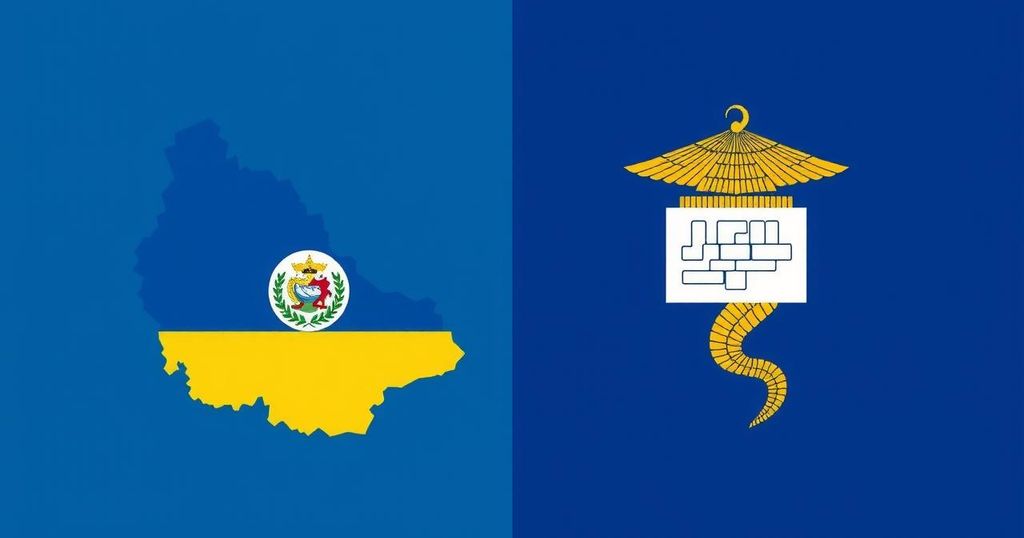Business
economics
AG, AGNE LINGE, AGNE LINGE LINGE, ASIA, BHUTAN, BITCOIN MINING, BLOOMBERG, BRAZIL, BTC, BUKELE, ECONOMIC DEVELOPMENT, ECONOMICS, ECONOMY, EL SALVADOR, IMF, INTERNATIONAL BUSINESS TIMES, INTERNATIONAL MONETARY FUND, LINGE, NAY, NAYIB BUKELE, NORTH AMERICA, PHILIPPINES, SALVADOR, SOUTH AMERICA, TRADE
Fatima Khan
0 Comments
El Salvador and Bhutan: Trailblazers in National Bitcoin Reserves
El Salvador and Bhutan have emerged as leaders in Bitcoin adoption with El Salvador acquiring approximately 6,000 BTC since late 2022 through daily purchases, while Bhutan has over 12,000 BTC from mining operations. Both countries demonstrate that with strong leadership and strategic resource management, even smaller economies can benefit significantly from cryptocurrency investments.
El Salvador and Bhutan, two nations not often recognized on the global stage, have emerged as significant players in the financial realm through their strategic adoption of Bitcoin (BTC). Since late 2022, El Salvador has accumulated nearly 6,000 BTC via a daily purchasing strategy, while Bhutan boasts over 12,000 BTC, derived from its mining operations. The leaders of these countries are confident in their Bitcoin strategies, which are proving beneficial amid growing market values.
El Salvador’s bold move to adopt Bitcoin as legal tender in 2021 was met with skepticism; however, President Nayib Bukele’s decision to invest consistently in Bitcoin has paid off. As of recent reports, the country’s Bitcoin holdings have enhanced its economic position and improved relations with the International Monetary Fund (IMF), which is now more inclined towards providing financial support.
In contrast, Bhutan has taken a quieter route, establishing a sizable Bitcoin treasury through strategic mining initiatives. This approach has positioned Bhutan favorably in terms of revenue generation amidst fluctuations in the cryptocurrency market. According to Agne Linge of WeFi, Bhutan’s effective use of its natural resources for Bitcoin mining exemplifies prudent economic strategy.
The leadership styles of both nations have played a crucial role in their thriving Bitcoin ventures. El Salvador’s unwavering commitment amidst external doubts and Bhutan’s silent yet methodical build-up of resources exemplify the impact of strong leadership on economic decision-making. Linge suggests that if larger economies follow in their footsteps, the global adoption of Bitcoin could increase significantly.
Countries that are developing or have abundant natural resources stand to gain considerably from well-structured Bitcoin strategies. The recognition of Bitcoin as a viable asset class is growing, and these smaller nations demonstrate that innovative strategies can lead to substantial growth. WeFi’s aim to foster a digital financial infrastructure indicates a broader movement toward cryptocurrencies, which many nations may soon adopt as part of their national strategies for economic development.
Bitcoin has gained prominence as a transformative financial technology since its inception, prompting various nations to explore its potential benefits. El Salvador made headlines as the first country to embrace Bitcoin as legal tender in 2021, leading to a series of endeavors under President Nayib Bukele’s leadership to integrate cryptocurrency into the economy. Meanwhile, Bhutan, a small landlocked nation, has strategically utilized its hydroelectric resources to mine Bitcoin, generating significant revenue and establishing a considerable BTC reserve. This emerging trend highlights the shift in global attitudes towards cryptocurrency, where even smaller nations can leverage digital assets to enhance their economic standing.
Both El Salvador and Bhutan have illustrated that through innovative strategies and strong leadership, smaller nations can compete effectively in the world of cryptocurrency. Their experiences serve as a model for other countries, particularly those with limited economic growth or abundant resources. The ongoing evolution in perceptions of Bitcoin suggests a shifting landscape in which digital currencies may play a central role in national economies in the future.
Original Source: www.ibtimes.com




Post Comment